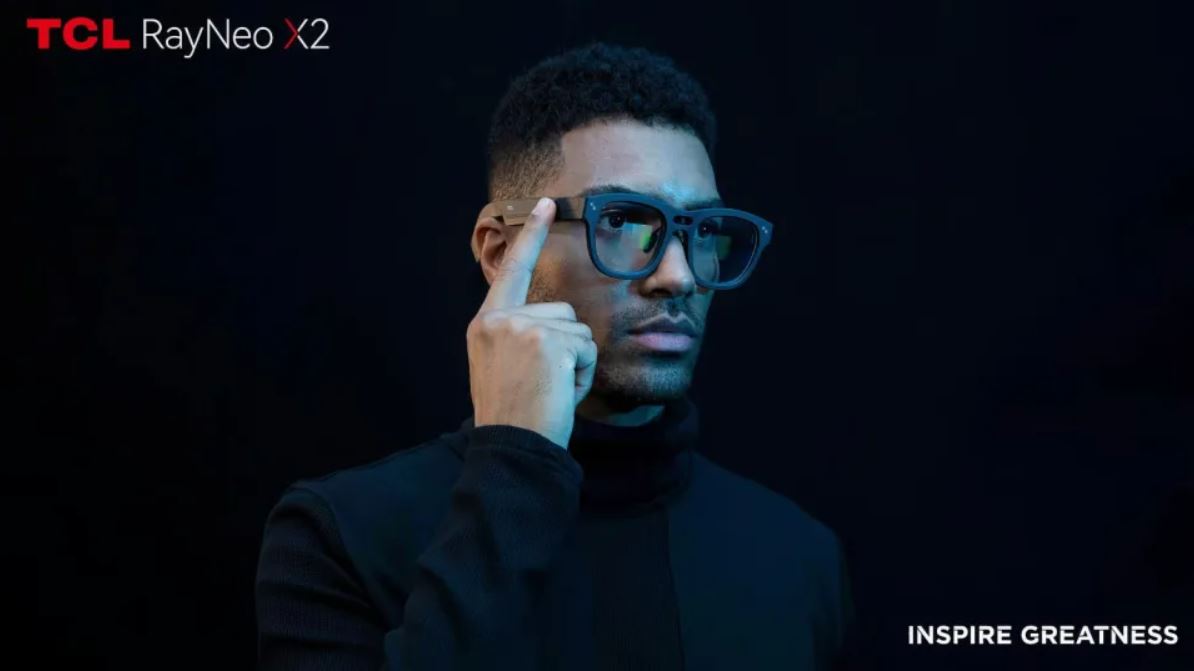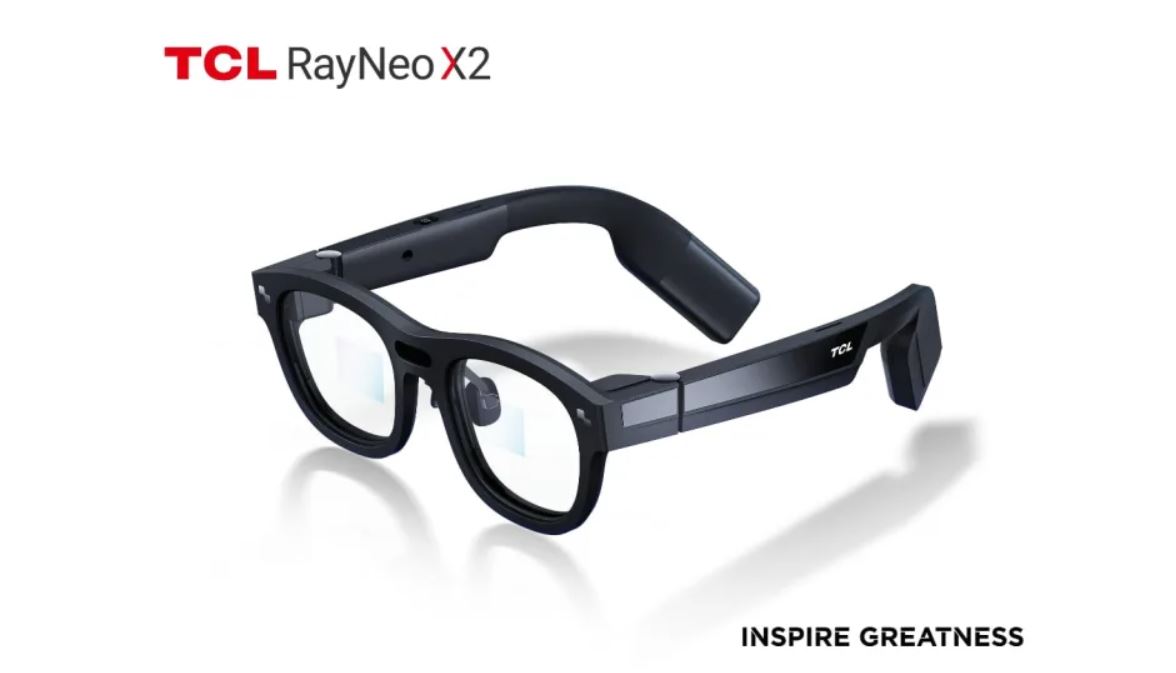The prototype RayNeo X2 begins shipping to developers early this year.

If augmented reality glasses become a groundbreaking product category, they will need to look similar to regular prescription glasses. TCL is showcasing a pair of frames at CES 2023 that — while inching further in that direction — accentuate how tall of an order that still is. TCL describes its RayNeo X2 AR glasses as having a “subtle and lightweight body for everyday wear,” but their comically oversized nature makes us question whether “subtle” was the best word choice.
TCL says the RayNeo X2 “harness pioneering binocular full-color MicroLED optical waveguide displays.” While that’s quite a mouthful of technical jargon, that’s because the company isn’t (yet) aiming these glasses toward consumers. Instead, it’s a developer platform to flesh out over time as AR tech gets smaller and better.
TCL’s glasses run on the Qualcomm Snapdragon XR2 platform, the same chipset found in the Meta Quest 2 VR headset. Its MicroLED display has an impressive 100,000:1 contrast ratio and can reach a brightness of 1,000 nits, which should help make its visuals readable in bright sunlight. In addition, as reported by CNET, TCL says it will offer prescription inserts that allow you to use them in place of regular glasses — not on top of them.

Rather than approaching AR like HoloLens or Magic Leap, where 3D-animated virtual characters leap across your furniture, TCL’s glasses are more in the vein of Google Glass. For example, the company says its “smart GPS” navigation system uses simultaneous localization and mapping (SLAM) to overlay virtual directions while showcasing nearby landmarks. The glasses can also deliver on-screen call and message pop-ups or translate in-person conversations with real-time subtitles. In addition, it can play music quietly so that others around you won’t hear. Finally, it has a built-in camera for capturing first-person videos, stills and time-lapse photos.
These are all ways AR glasses could — and likely will —enhance our lives someday. But it’s 2023, and a company well-established in advanced display technology still has trouble shrinking its glasses to a more subtle size. It helps to understand how deeper-pocketed competitors like Apple still haven’t announced consumer AR wearables despite reportedly working on them for the better part of a decade. This category requires advances that have taken loads of time — and will likely take at least a bit more.
While we wait for AR glasses to advance to the point where we’ll want to wear them publicly, TCL is recruiting developers to help it prepare for that day. The company will start offering the RayNeo X2 dev kit to software makers “in select regions” by the end of Q1. It says a commercial launch will come later, although we imagine that will fare better with future iterations that don't make you look like 1970s-era Michael Caine.
TrendForce 2023 Micro LED Market Trend and Technology Cost Analysis
Release Date: 31 May / 30 November 2023
Language: Traditional Chinese / English
Format: PDF
Page: 160 / Year
|
If you would like to know more details , please contact:
|











